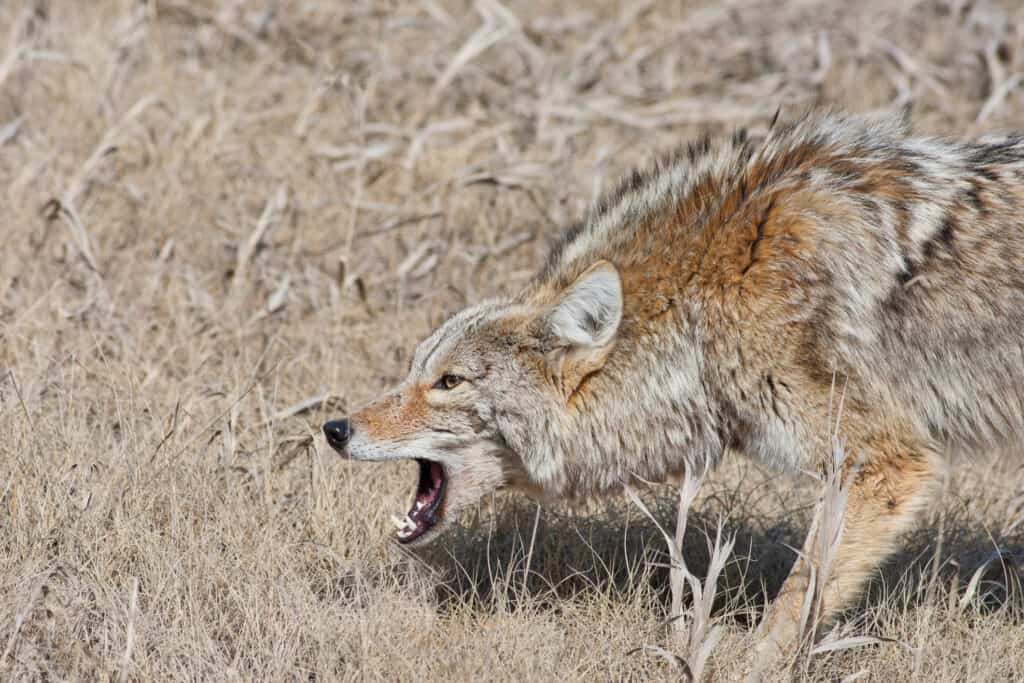Unveiling The Truth: Do Coyotes Have Rabies?

When it comes to understanding wildlife, one question often arises: do coyotes have rabies? This inquiry is not merely an academic one; it holds significant implications for public health and safety. As coyotes continue to adapt and thrive in urban environments, encounters between humans and these cunning creatures are becoming increasingly common. Consequently, awareness about rabies and its potential transmission through coyotes is paramount for communities across the United States.
The coyote, a highly adaptable member of the canine family, has found a niche in suburban and urban landscapes. However, the presence of coyotes can evoke fear, particularly concerning the transmission of rabies, a viral disease that affects the central nervous system of mammals. Understanding whether coyotes carry this disease can help in mitigating risks and ensuring the safety of both humans and pets. This article delves into the facts surrounding coyotes and rabies, addressing common myths and providing clarity on this critical issue.
As we explore the relationship between coyotes and rabies, it is essential to differentiate fact from fiction. Many misconceptions surround wild animals and their potential to transmit diseases. By educating ourselves about the behaviors and health of coyotes, we can take informed steps to coexist with these fascinating creatures while safeguarding our communities.
What is Rabies?
Rabies is a fatal viral infection that primarily spreads through the saliva of infected animals. It is caused by the rabies virus, which belongs to the Lyssavirus genus. The disease is most commonly associated with bats, raccoons, and skunks, but it can be transmitted by any mammal that carries the virus. Understanding the nature of rabies is crucial to addressing concerns about coyotes and their potential role in spreading this dangerous disease.
How Do Coyotes Get Rabies?
Coyotes can contract rabies through bites from other infected animals, often during territorial disputes or food fights. Once infected, a coyote can transmit the virus to other animals or humans through bites or scratches. However, rabies is not common in coyote populations, and the incidence of rabies outbreaks among coyotes tends to be low compared to other wildlife.
Can Humans Get Rabies from Coyotes?
Though theoretically possible, the risk of contracting rabies from coyotes is low. Most interactions with coyotes do not lead to bites or scratches. Nevertheless, it is crucial to take precautions when encountering any wild animal. In the rare event that a coyote appears aggressive or displays unusual behavior, it is advisable to maintain a safe distance and report the sighting to local wildlife authorities.
Do Coyotes Show Signs of Rabies?
Coyotes exhibiting symptoms of rabies may display erratic behavior, such as confusion, aggression, or an unusual lack of fear towards humans. Other signs may include excessive drooling, difficulty walking, and seizures. However, these symptoms can also be indicative of other health issues, so it is essential to consult wildlife professionals for an accurate assessment.
How Common is Rabies in Coyotes?
The prevalence of rabies in coyote populations varies by region. In some areas, rabies outbreaks can occur, particularly in certain seasons or during specific environmental conditions that lead to increased contact between wildlife and domestic animals. However, rabies is less commonly reported in coyotes compared to other wildlife species.
What Should You Do If You Encounter a Coyote?
- Stay calm and do not approach the animal.
- Make loud noises to scare the coyote away.
- Secure pets and children indoors.
- Report any aggressive or unusual behavior to local authorities.
How Can You Protect Yourself from Rabies?
To reduce the risk of rabies transmission, it is essential to take preventive measures:
Conclusion: Do Coyotes Have Rabies?
In conclusion, while coyotes can contract rabies, the occurrence of this disease in coyote populations is relatively low. Understanding the facts surrounding coyotes and rabies can help alleviate fears and promote coexistence with these adaptable animals. By taking appropriate precautions and remaining informed, we can ensure the safety of our communities while appreciating the vital role that coyotes play in our ecosystems.
ncG1vNJzZmirn521b6%2FOpmasp5idu6bD0qCcq7FiZLGwecKosKislah6qa3VnmSrmZKesrR6x62kpQ%3D%3D